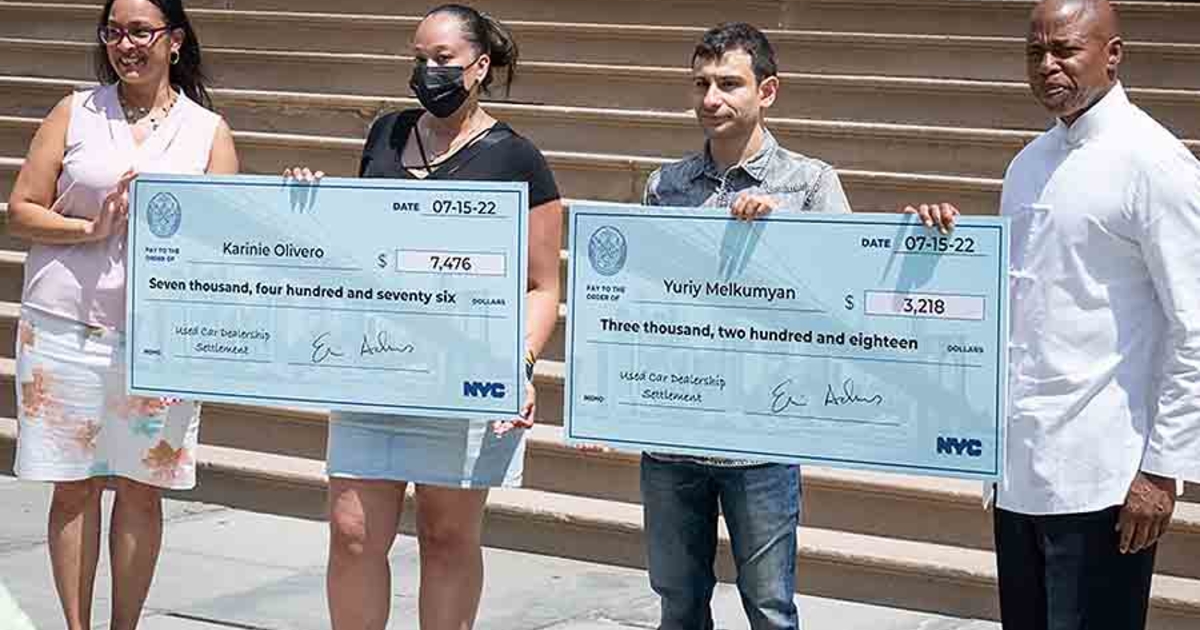
Brooklyn Mitsubishi and Brooklyn Volkswagen have agreed to pay more than $800,000 in combined penalties and restitution and admit violations to end a case brought by a New York consumer agency.
The June 28 settlement also saw the city temporarily suspend two Brooklyn Mitsubishi licenses from July 3 to 9.
Brooklyn Mitsubishi and its used-vehicle business were tied to the bulk of the 13 administrative law counts alleged by the New York City Department of Consumer and Worker Protection, including more than 7,000 instances of deceptive trade practices encompassed within one count.
The accused parties, which included the dealerships’ parent companies and management, must collectively pay a $500,000 penalty and $304,900 worth of restitution to consumers. The city said it will keep any unspent restitution money as a civil penalty.
“We are helping deliver more than $300,000 back into the pockets of New York City consumers who were ripped off by Brooklyn Mitsubishi and Brooklyn Volkswagen and are stopping their unlawful behavior dead in their tracks,” New York City Mayor Eric Adams said in a statement July 15.
Brooklyn Mitsubishi and Brooklyn Volkswagen owner Charalambos Charalambous and general manager Rudy Treminio joined dealership parent companies Kings Autoshow Inc., Kings Autoshow II Inc. and Grand Auto Group in pleading guilty to the violations alleged in a June 23 petition to the city’s Office of Administrative Trials and Hearings.
Some of the 13 counts included allegations involving one of the two facilities, while some implicated both locations.
The consumer department brought accusations of selling used vehicles for more than the price advertised; deceptive trade practices; selling recalled used vehicles without providing NHTSA information; submitting false, misleading and deceptive credit applications and contracts to a finance company; failing to provide Truth in Lending Act disclosures and financing disclosure forms; failing to communicate the precise terms a finance company can charge; conditional sales contracts on used vehicles; failing to provide complete and truthful information on license applications; failing to report a new business name; failing to report a change in address; failing to respond to subpoenas and appear for hearings; failing to maintain records for six years; and operating a used-vehicle dealership without a license.
Attorneys for the five respondents have not yet responded to a Monday email from Automotive News seeking comment. A message left late Tuesday for Treminio has not yet been returned.
The June 28 settlement came less than a week after the Federal Trade Commission proposed new nationwide rules meant in part to combat bait-and-switch advertising. The agency has proposed requiring dealerships that advertise vehicles to show a definitive price (excluding taxes and other government charges) at which they would sell that vehicle to anyone.
The city highlighted misleading advertising in its July 15 news release and featured a victim of the practice, consumer Karinie Olivero.
Olivero saw a 2017 Jeep four-wheel-drive Grand Cherokee advertised by Brooklyn Mitsubishi on CarGurus for $27,994 and sought to buy the vehicle at that price, putting $10,000 down in June 2018, according to the agency. The dealership “rushed” her through documents and ultimately charged her $36,585 for the Grand Cherokee, the city alleged. When Olivero complained, she was told she didn’t qualify for that sale price because of her credit, the city said.
“I wanted to buy a car to provide a better life for myself and my family,” Olivero said in a statement. “But these dealerships preyed on consumers like me with false and misleading information, and they failed to notify me of my rights under the law.”
Brooklyn Mitsubishi’s admission to a single count of deceptive trade practices acknowledged more than a thousand instances of false and misleading prices, more than 3,000 false declarations it didn’t charge dealership fees, and more than 2,700 examples of advertising financing approval as guaranteed when it wasn’t.
The petition shows a New York City dealer can rack up deceptive trade practice violations easily for advertising. For example, every misleading price displayed on an individual dealership or third-party listing website counted as a separate violation, according to the city. Every day each of five YouTube videos existed on the Brooklyn Mitsubishi YouTube channel proclaiming a lack of dealership fees constituted a separate violation, the city said. Some of these were knowing violations, committed after the department alerted the dealership about advertising it found deceptive, the city said.